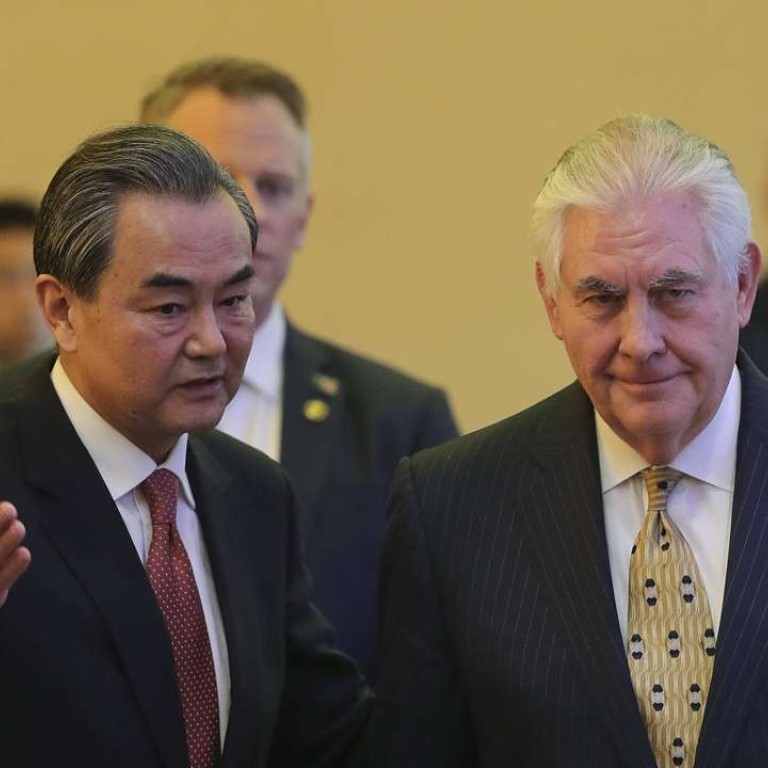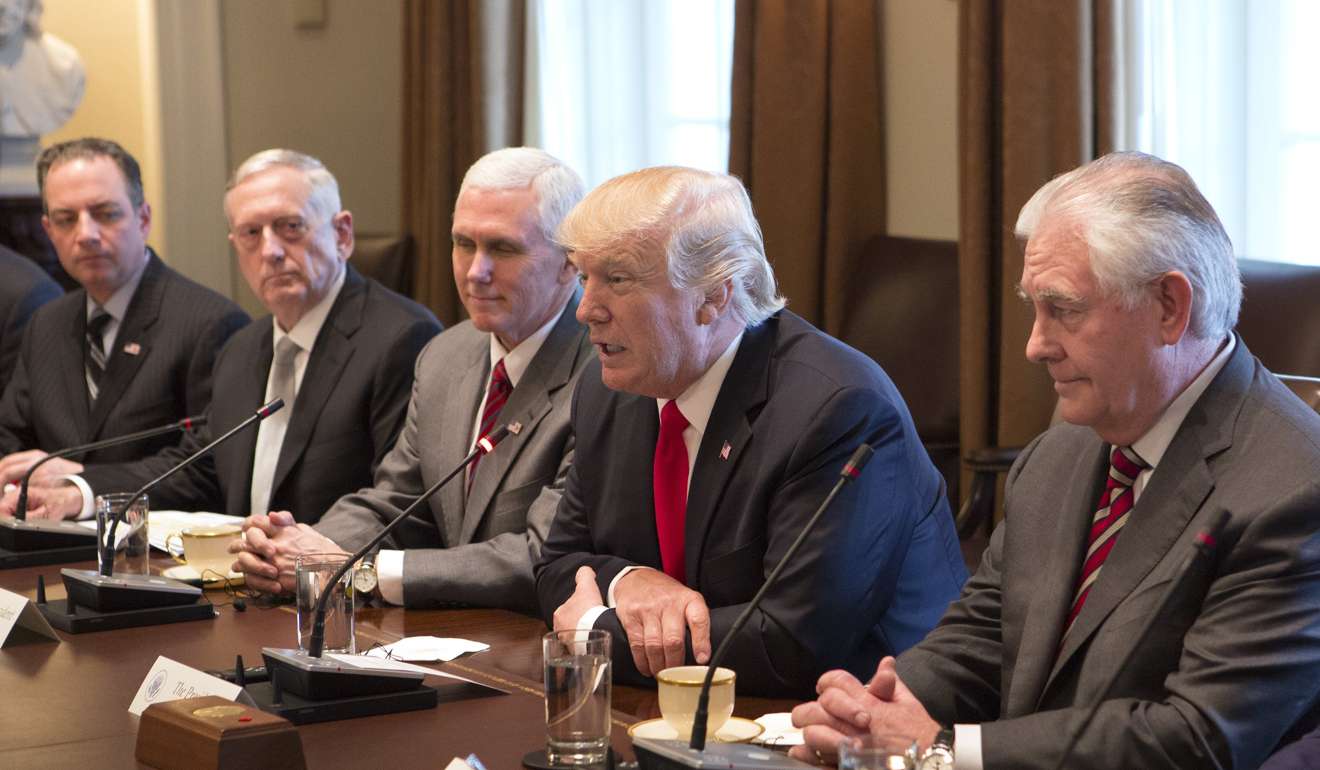
Time for Asian-style diplomacy, not the US, to take the lead on North Korea
Chandran Nair says Asian nations cannot be mere bystanders or slavish US allies as Washington’s self-serving strategies worsen the prospects for regional peace, and new options can start with an all-Asian alternative to the six-party talks
Three months ago, Rex Tillerson was CEO of a global oil giant with a mixed reputation on global issues such as climate change and the environment. Today, he is the top American diplomat, working for a president whose foreign policy approach, as a New York Times editorial put it, “has rattled the world” and, as the Financial Times described it, “scares a lot of people witless”.

Tillerson fires warning of pre-emptive US military strike on North Korea
And now, during his first trip to the Asian region, Tillerson was so self-assured as to warn us that all options were on the table, including a unilateral military strike. This is perhaps the definition of undiplomatic for a first-time diplomat visiting an unfamiliar region where there is a need for calm diplomacy, not the ratcheting up of tensions by a non-regional power. This is something he had been reminded of by the Chinese since arriving in Beijing, where he did not repeat his threats.
It is time the region deployed an ‘Asian diplomacy’, devoid of threats and bullying, to solve its challenges
A cursory understanding of international law should make it clear that a pre-emptive strike would be illegal, and any military action would require UN Security Council approval, which is very unlikely.
As Foreign Minister Wang Yi (王毅) said in a recent statement: the situation is akin to “two accelerating trains” on a collision course.
What is telling is that the US has not learnt any lessons from the disasters in Iraq and Libya. Yet the world remains silent as a new US administration sets the scene for more dangerous adventures.
It is high time for Asian nations to stop being bystanders to a potential train wreck and allowing the future peace and prosperity of the region to be shaped by foreign powers unlikely to bear the true pain of a regional conflict. We in Asia cannot allow a belligerent US led by a temperamental billionaire and his cohort of rich friends to determine our future. This is an intolerable situation and would even be laughable, if not for the fact that it is a serious threat to global peace.
It is time the region deployed an “Asian diplomacy”, devoid of threats and bullying, to solve its challenges. It cannot allow Western disdain for the methods used in the region, rooted in its culture, traditions and deep appreciation of its history, to stop it from acting in its interests. The region needs to create an alternative to the six-party talks and explore other options that allow Asian-style diplomacy to work. It should consider excluding the US, with its proven inability to function in complex regions mainly because so much of its foreign policy is shaped by its toxic domestic politics. This has led to inexperienced political appointees with odd views of the world serving as US diplomats and ignoring the advice of career diplomats in the State Department. This was true of the George W. Bush administration as well. A more effective approach would be to assemble a world-class group of diplomats from within the immediate region.
How to tackle North Korea nuclear threat: what China, US agree, argue over
Japan and South Korea would have a key role. Both need to stop acting as if they do not have a foreign policy independent of the United States and instead form a strong neighbourly alliance that seeks to work with China. This will require all three parties to once and for all patch up their historical grievances, which have allowed the region to be “divided and ruled” by non-regional powers like the US.
Asia cannot be held hostage by a South Korea and Japan that remain so wedded to US foreign policy
If they are unable to work together, then the other nations of the region will need to take the initiative, as the issue of North Korea will affect all of Asia – which cannot be held hostage by a South Korea and Japan that remain so wedded to US foreign policy.
This is the moment for the region to stop being led by the self-serving agenda of the US and other Western powers which have also created a belief that Asian diplomacy is somehow inferior (because it does not follow Western norms) and that the diplomatic capabilities in the region are weak.
This cannot be further from the truth. We surely do not need any further evidence that the American political system is broken and, as a result, has dangerous implications for the world if Asia remains subservient to its unreliable leaders with naive and dangerous policies.
Chandran Nair is founder and CEO of the Global Institute For Tomorrow

